Hey, this is Yuanhao. I am currently a Ph.D. Candidate at the HCI Initiative of Hong Kong University of Science and Technology (HKUST), supervised by Prof. Xiaojuan Ma. Prior to that, I earned my Bachelor’s Degree in Computer Science at HKUST.
My research focuses on human–AI interaction and social computing. I employ human-centered design principles to develop interactive AI systems that enhance and extend human capabilities, with applications in social media and online communities, education and learning, and collective action. I seek empirical insights into how to harness AI’s potential for meaningful social impact across scales—from dyadic interactions involving a single human counterpart to multiparty contexts, where AI engages as a contributing member of a group.
🔥 News
- 2025.10: 🌺🌺 CSCW 2025! See you in Bergen!
- 2025.04: 🌺🌺 CHI 2025! See you in Yokohama!
- 2025.02: ✏️✏️ I will serve as an associate chair (AC) of the CHI 2025 Late Breaking Works track!
- 2025.01: 🎉🎉 Two papers conditionally accepted to CHI 2025. Thanks to my co-authors!
- 2025.01: 🎤🎤 Passed my PhD Qualifying Exam!
- 2024.10: 🌉🌉 Attended UIST 2024 in Pittsburgh!
- 2024.05: 🏄♂️🏄♂️ Have my first CHI travel in Hawaii!
📝 Publications

Designing AI-Infused Interactive Systems for Online Communities: A Systematic Literature Review
Yuanhao Zhang, Xiaoyu Wang, Jiaxiong Hu, Ziqi Pan, Zhenhui Peng and Xiaojuan Ma
- We present a systematic review of 77 studies, analyzing the systems they propose through three lenses: the challenges they aim to address, their design functionalities, and the evaluation strategies employed.
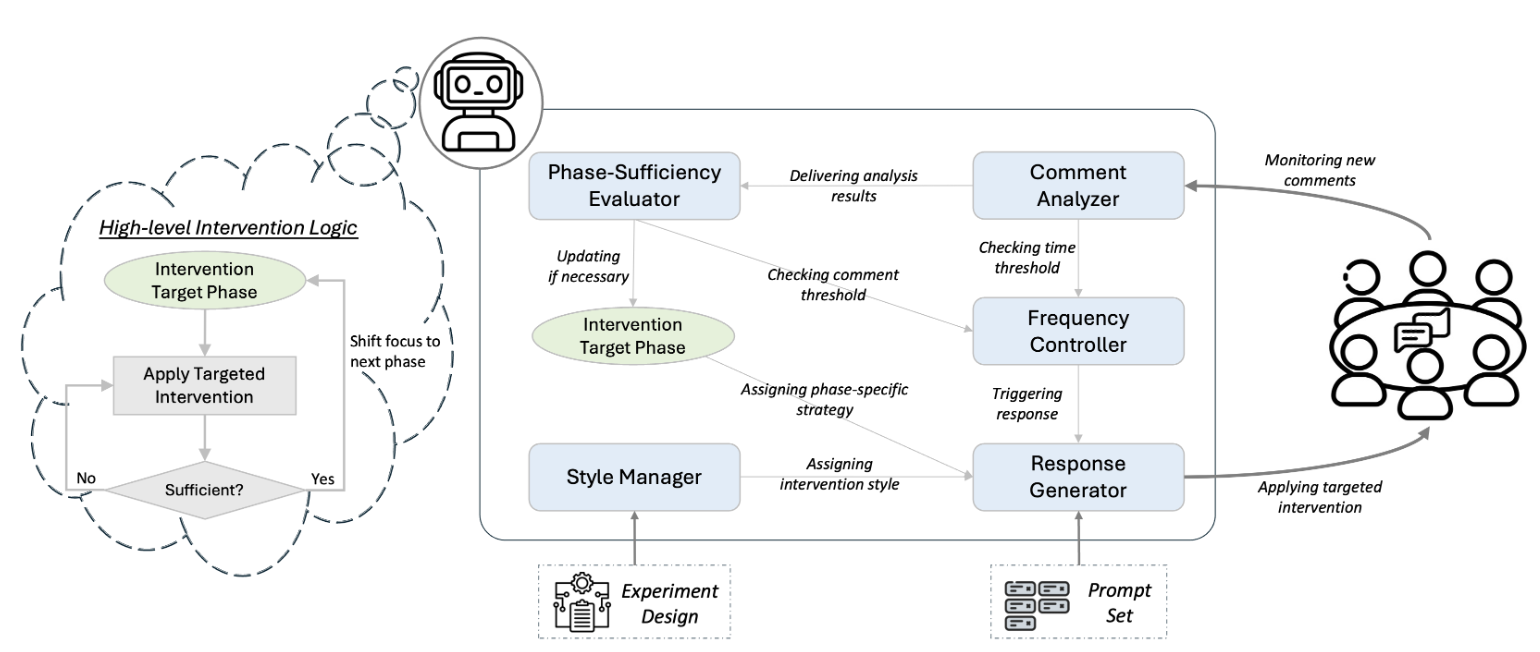
Yuanhao Zhang, Wenbo Li, Xiaoyu Wang, Kangyu Yuan, Shuai Ma, and Xiaojuan Ma
- We explored AI intervention strategies (task-oriented and/or relationship-oriented) throughout the knowledge co-construction process, and implemented them in an LLM-powered agent capable of facilitating progression while consolidating foundations at each phase.
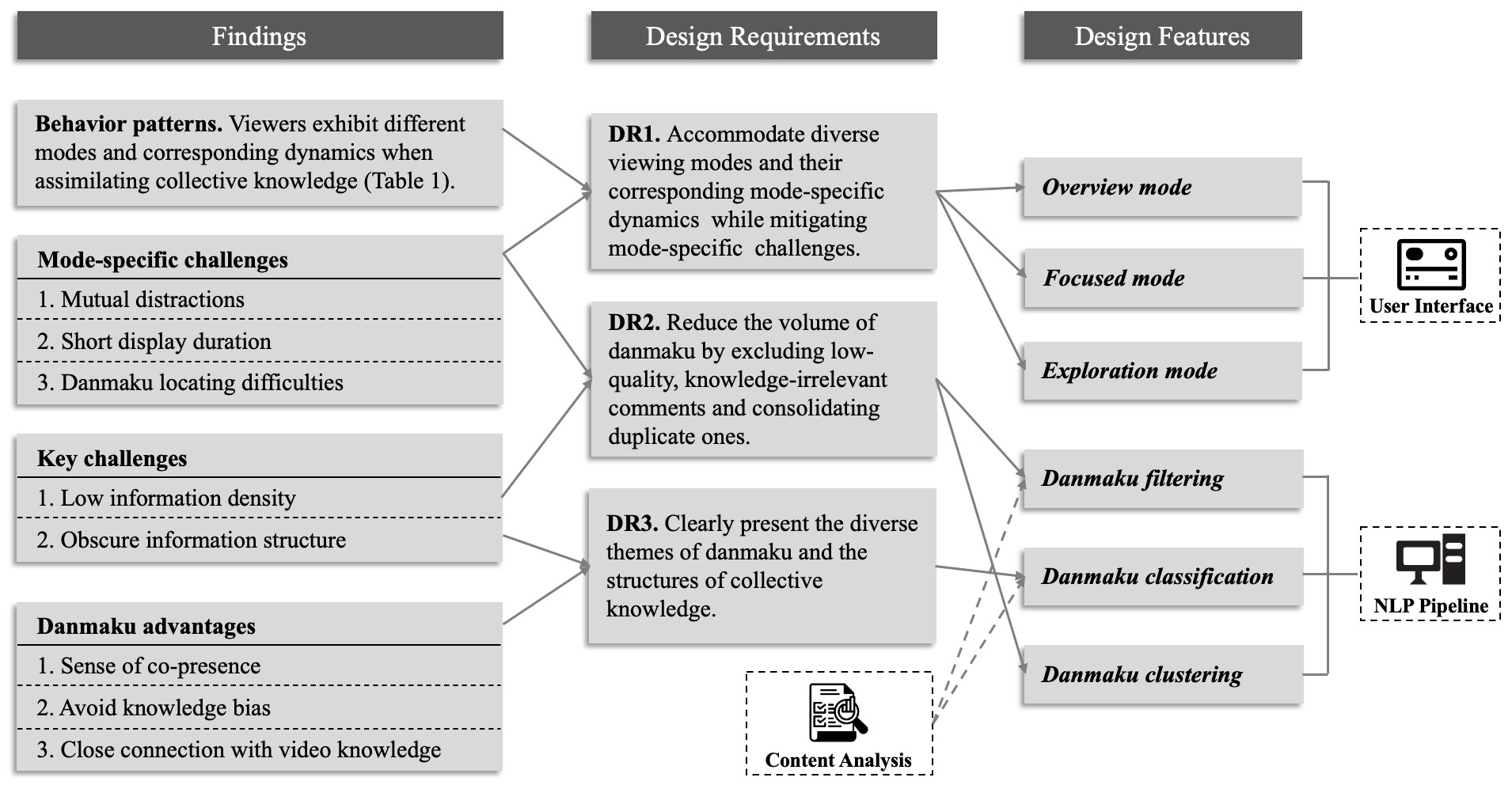
CoKnowledge: Supporting Assimilation of Time-synced Collective Knowledge in Online Science Videos
Yuanhao Zhang, Yumeng Wang, Xiyuan Wang, Changyang He, Chenliang Huang, and Xiaojuan Ma
- We developed CoKnowledge — a tool incorporating video abstracts, knowledge graphs, and supplementary danmaku features support viewers’ assimilation of collective knowledge in online science videos.
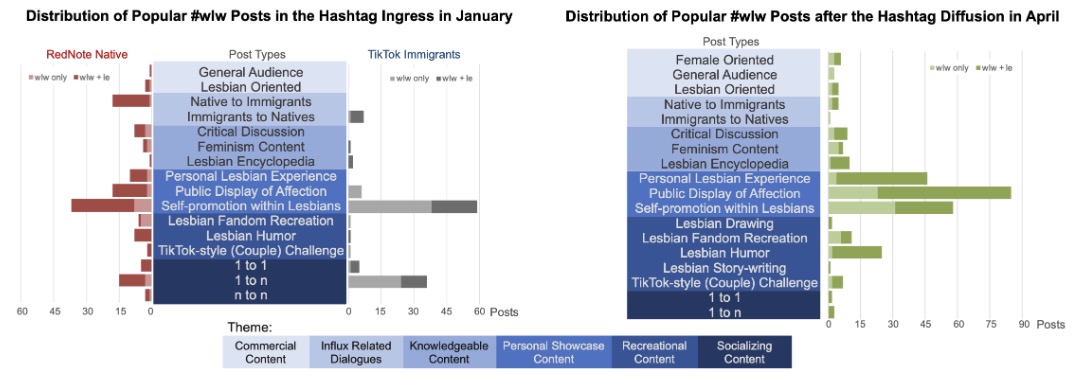
Ziqi Pan, Runhua Zhang, Jiehui Luo, Yuanhao Zhang, Yue Deng, and Xiaojuan Ma
- The Western-origin #wlw (womenloving-women) hashtag has risen in the Chinese lesbian community on RedNote. We conducted a two-phase content analysis of #wlw posts, examining different usage patterns during the hashtag’s ingress and diffusion.

Kangyu Yuan, Li Zhang, Hanfang, Lyu, Ziqi Pan, Yuanhao Zhang, Junze Li, Bingcan Guo, Jiaxiong Hu, Qingyu Guo, and Xiaojuan Ma
- The U.S. government’s announcement to ban TikTok in January 2025 led an influx of TikTok users to migrate to RedNote, a Chinese user dominant social media platform. In this study, we analyze 3,510 RedNote posts to characterize how TikTok migrants blend into the platform.
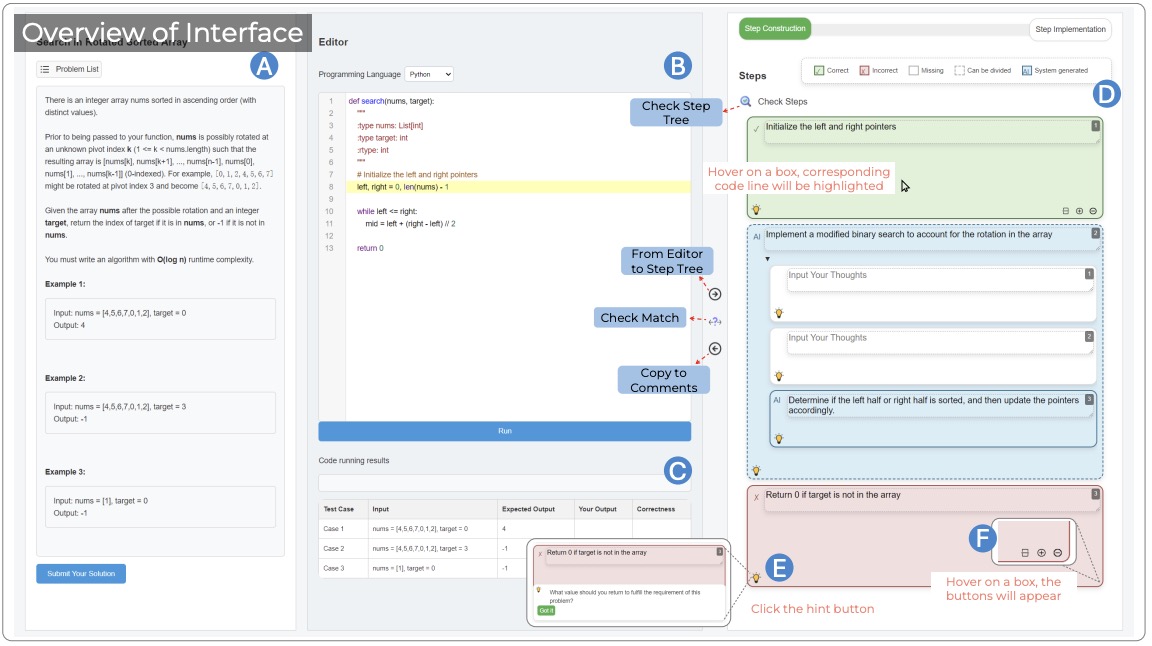
DBox: Scaffolding Algorithmic Programming Learning through Learner-LLM Co-Decomposition
Shuai Ma, Junling Wang, Yuanhao Zhang, Xiaojuan Ma, and April Wang
- We introduced Decomposition Box (DBox), an LLM-based interactive system that scaffolds and adapts to learners’ personalized construction of a step tree by providing just the right level of support.

Be There, Be Fun, Be Streamed! Designing Interactive AR Scenic Live-Streaming.
Zeyu Huang, Zuyu Xu, Yuanhao Zhang, Chengzhong Liu, Yanwei Zhao, Chuhan Shi, Chen Zhao, and Xiaojuan Ma
- We propose a medium called Augmented Reality Scenic Live-Streaming (ARSLS), where additional virtual content is superimposed and integrated into the real-world scene to actualize proper audience interactions in scenic-oriented live streams.
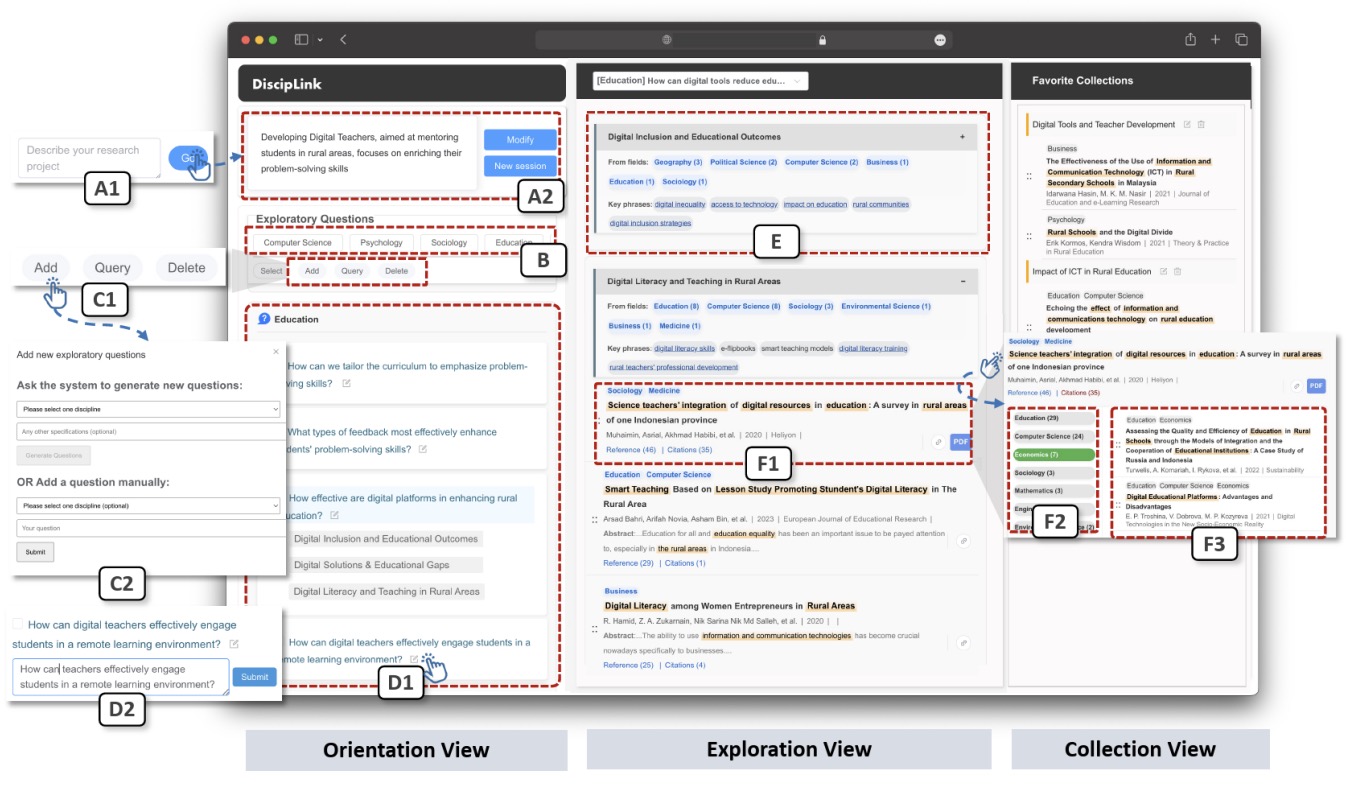
DiscipLink: Unfolding Interdisciplinary Information Seeking Process via Human-AI Co-Exploration
Chengbo Zheng, Yuanhao Zhang, Zeyu Huang, Chuhan Shi, Minrui Xu, and Xiaojuan Ma
- We introduce DiscipLink, a novel interactive system that facilitates collaboration between researchers and large language models (LLMs) in interdisciplinary information seeking (IIS).
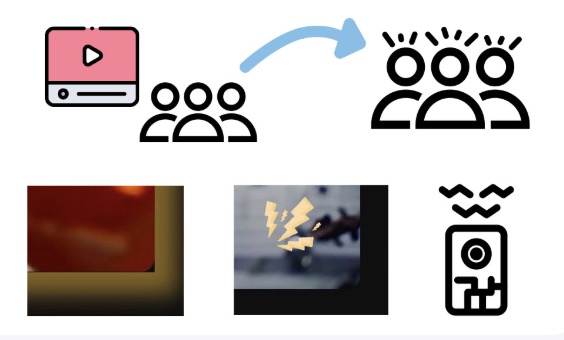
Zeyu Huang, Xinyi Cao, Yuanhao Zhang, and Xiaojuan Ma.
- We propose an afective communication approach on online video platforms that senses, aggregates, and presents viewers’ frissons while watching videos asynchronously.
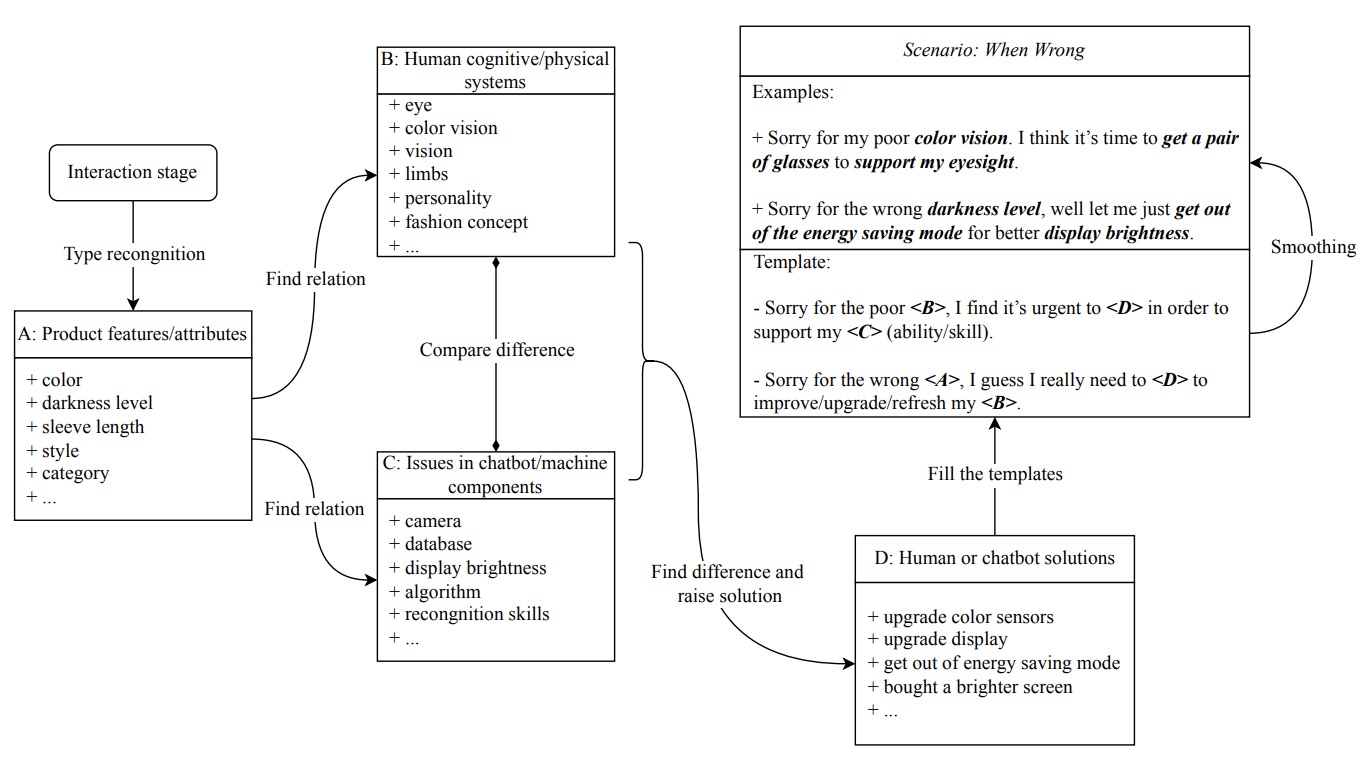
Exploring the Effects of Self-Mockery to Improve Task-Oriented Chatbot’s Social Intelligence
Chengzhong Liu, Shixu Zhou, Yuanhao Zhang, Shixu Zhou, Dingdong Liu, Zhenhui Peng, and Xiaojuan Ma.
- We proposed to apply self-mockery humor to a customer service chatbot in different interaction stages with users to improve chatbots’ overall social intelligence.
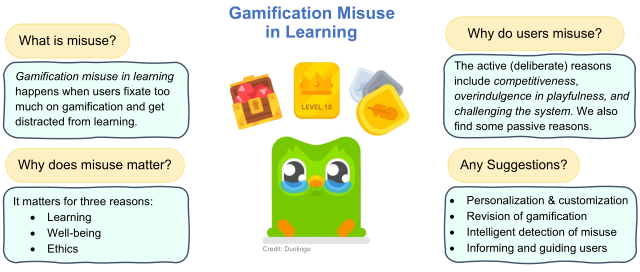
Reza Hadi Mogavi, Bingcan Guo, Yuanhao Zhang, Ehson UI Haq, Pan Hui, and Xiaojuan Ma.
- We conducted the first extensive qualitative research on gamification misuse in a popular learning app called Duolingo. This study consists of two phases: (I) a content analysis of data from Duolingo forums (from the past nine years) and (II) semi-structured interviews with 15 international Duolingo users.

Reza Hadi Mogavi, Yuanhao Zhang, Yongjin Wu, Pan Hui, and Xiaojuan Ma.
- We conduct an extensive qualitative case study of users’ experiences with a promotional gamification scheme on the Community Question Answering Website (CQA) of Stack Exchange, called Winter Bash (WB).
🎖 Honors and Awards
- 2023-2027 Hong Kong PhD Fellowship Scheme @ HKUST
- 2023-2024 RedBird PhD Award @ HKUST
- 2023 Academic Achievement Medal @ HKUST
- 2022 Methods Recognitions Award @ CSCW2022
- 2022 Honorable mentions Award @ L@S 2022
- 2020-2023 Dean’s Lists @ School of Engineering, HKUST
- 2020-2023 Scholarship Scheme for Continuing Undergraduate Students @ HKUST
💻 Service
- Session Chair: CHI 2025
- Program Committee: CHI LBW 2025
- Reviewer: CHI PLAY 2023, CHI LBW 2023, CSCW 2024, CHI 2025, CSCW 2025, DIS 2025
